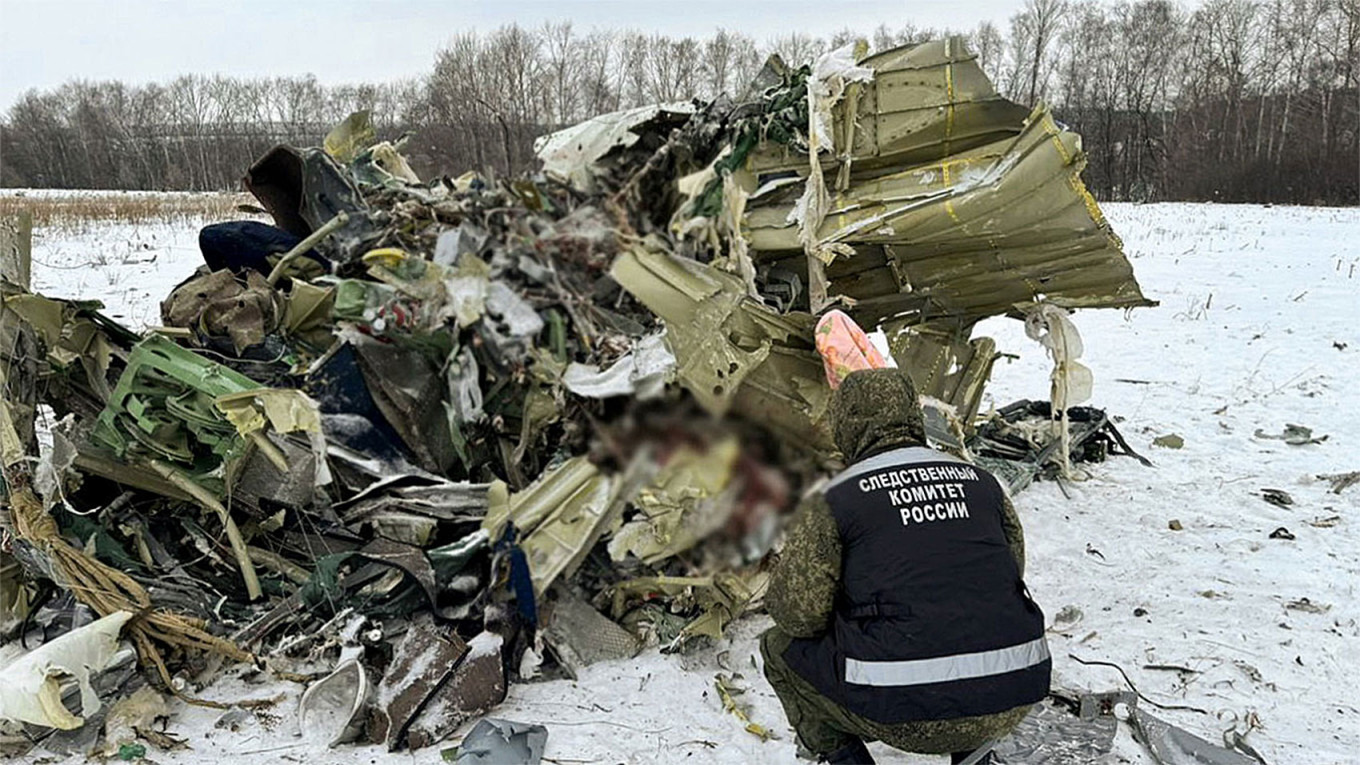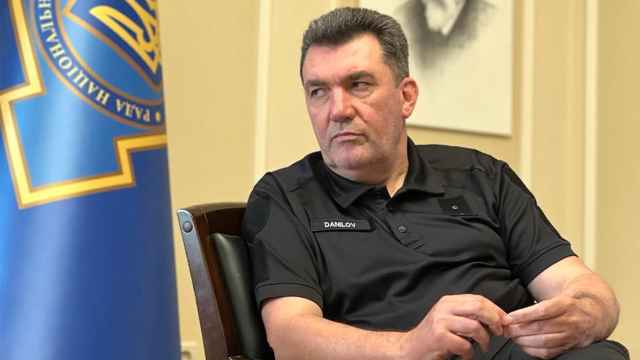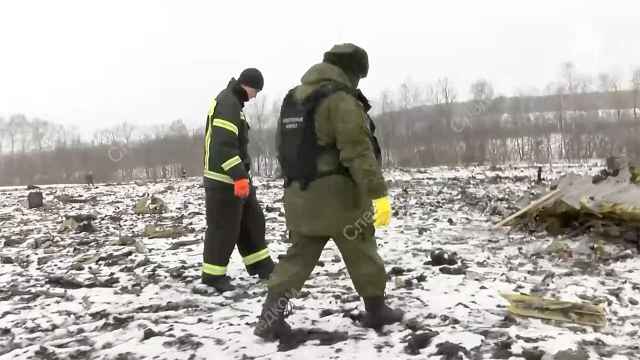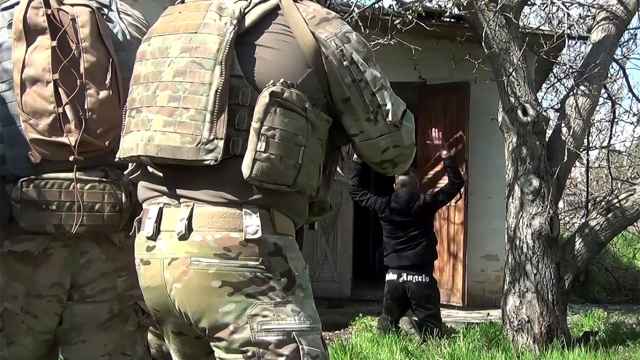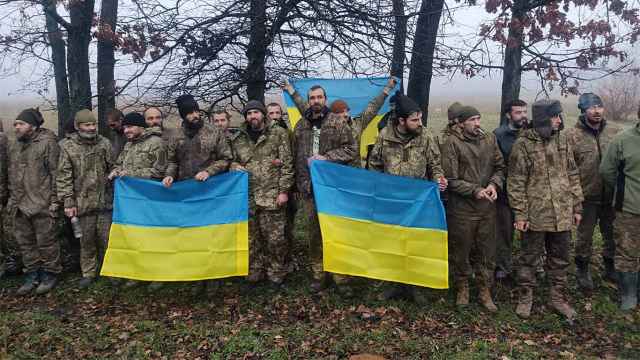Moscow is ready to give Kyiv the bodies of Ukrainian prisoners of war who were said to have died in a military plane crash last month, Russia’s presidential human rights commissioner Tatiana Moskalkova said Friday.
Russia claims 65 Ukrainian servicemen en route for a scheduled prisoner exchange were killed on Jan. 24 when a missile fired from northeastern Ukraine struck an Il-76 military transport plane.
“The bodies can be handed over according to existing procedures,” Moskalkova told the state-run news agency RIA Novosti.
“Everything needed in terms of the procedure is in place,” she added, claiming that Kyiv had expressed interest in retrieving the bodies.
Moskalkova’s Ukrainian counterpart, Dmytro Lubinets, accused her of “speculating” on the downing incident without allowing access to the cash site.
“So far, at my request, Russia has not handed over any official [passenger] lists, confirmed the fact or granted international organizations access to the site of the tragedy,” Lubinets wrote on the messaging app Telegram.
The Kremlin has previously denied receiving Kyiv’s requests for the soldiers’ bodies, while Ukrainian authorities, in their turn, denied that any prisoners of war were on board the downed Il-76.
Russia’s Investigative Committee, which probes major crimes, has said that genetic tests of nearly 700 body fragments recovered from the crash site had “undeniably” confirmed the 65 soldiers’ identities.
Moscow accuses Kyiv of using a U.S.-made Patriot surface-to-air missile system to shoot down the aircraft over western Russia’s Belgorod region.
Kyiv has neither confirmed nor denied its involvement, though it did say a prisoner exchange had been planned for the same day as the Il-76 crash.
Russia and Ukraine have both opened criminal investigations into the tragedy.
A Message from The Moscow Times:
Dear readers,
We are facing unprecedented challenges. Russia's Prosecutor General's Office has designated The Moscow Times as an "undesirable" organization, criminalizing our work and putting our staff at risk of prosecution. This follows our earlier unjust labeling as a "foreign agent."
These actions are direct attempts to silence independent journalism in Russia. The authorities claim our work "discredits the decisions of the Russian leadership." We see things differently: we strive to provide accurate, unbiased reporting on Russia.
We, the journalists of The Moscow Times, refuse to be silenced. But to continue our work, we need your help.
Your support, no matter how small, makes a world of difference. If you can, please support us monthly starting from just $2. It's quick to set up, and every contribution makes a significant impact.
By supporting The Moscow Times, you're defending open, independent journalism in the face of repression. Thank you for standing with us.
Remind me later.


